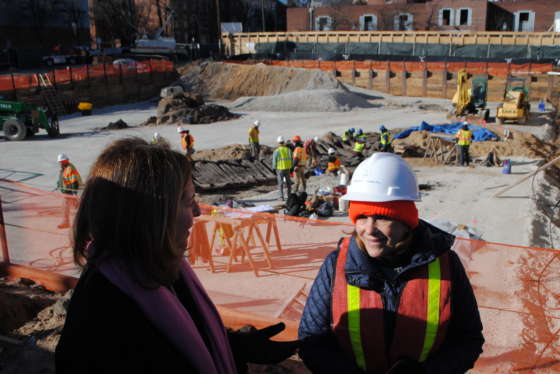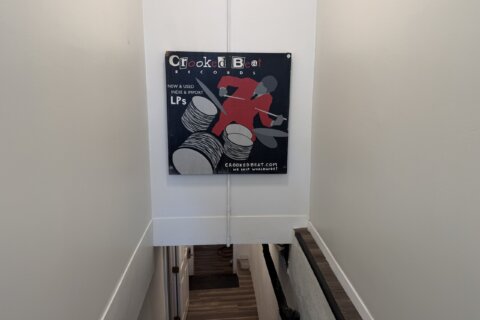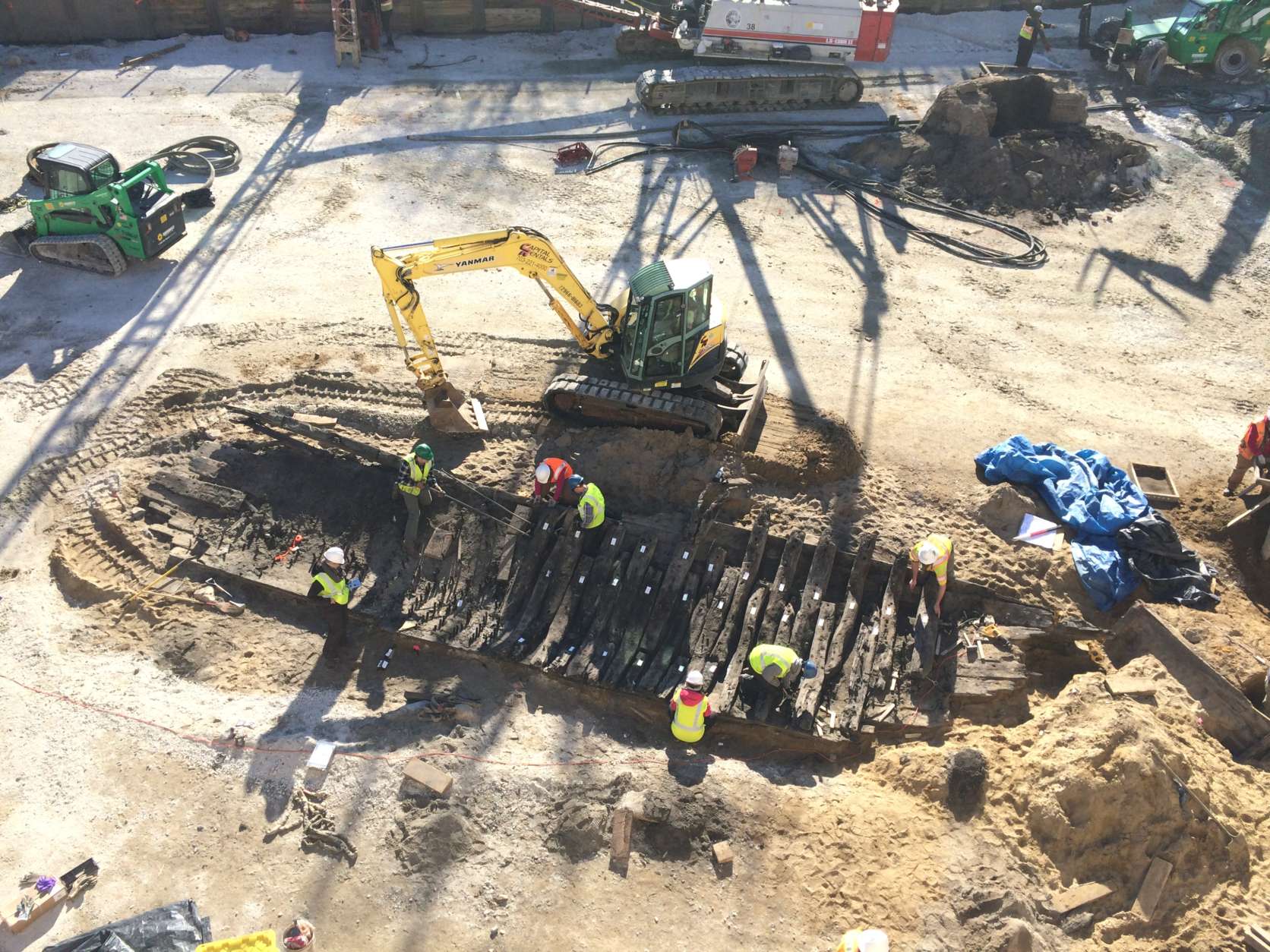
Alexandria's 18th century ship has set sail on it's next adventure to @TAMU's Conservation Research Laboratory in College Station, Texas. pic.twitter.com/ozds8Kr7AZ
— AlexandriaVAGov (@AlexandriaVAGov) June 23, 2017
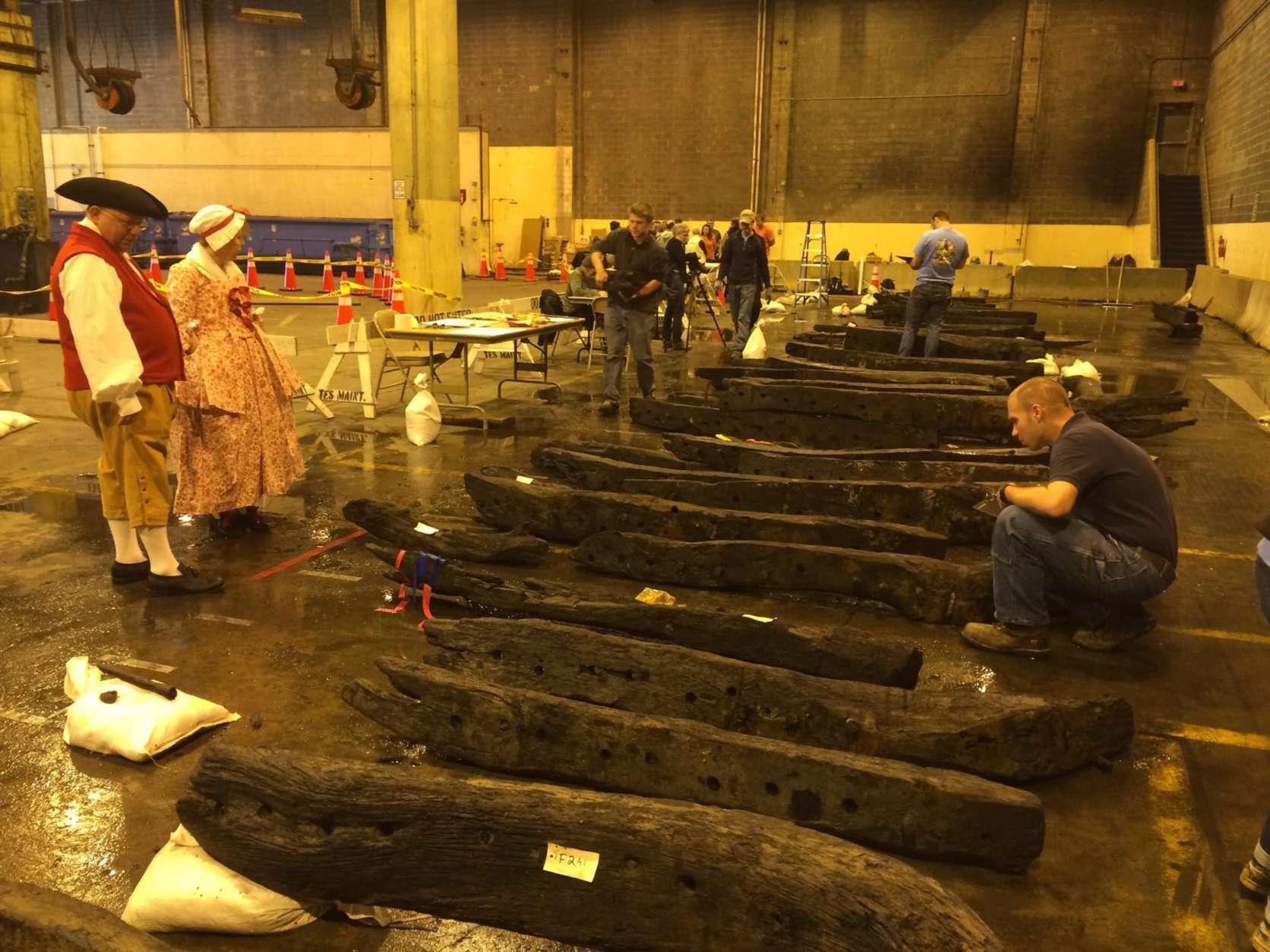
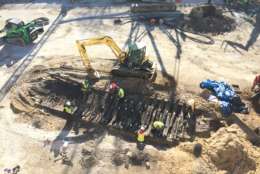
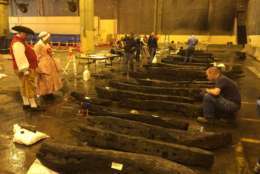
WASHINGTON — A new adventure has begun for an 18th-century ship found buried along the Potomac River in Alexandria.
Since the ship’s delicate timbers were pulled out of the ground in January 2016 at the site of what is now the Hotel Indigo, the city has stored them in water-filled tanks.
But earlier this month, 40 volunteers got to work preparing the wood for a major move.
In a video posted on the city’s Facebook page, archaeologist Eleanor Breen explained how they are going through a “very careful and slow process of documenting the timbers and packing them up.”
This involves individually wrapping timbers in a damp layer of an absorbent paper-towel material.
(The timbers need to stay wet to prevent deterioration and shrinking.)
“Then we’re using a substance like Saran Wrap to wrap each timber up,” Breen said, “and then the final stage is wrapping the timbers in foam.”
The pieces of wood were shipped to Texas A&M University’s Conservation Research Lab in College Station, about 100 miles northwest of Houston.
The lab received the timbers last week.
“The process of conservation will be a multiyear process, probably five or six years, before Alexandria can welcome the ship back to the city,” Breen said.
City leaders will use that time to plan for the ship’s big return and continue to raise money for its preservation through the “Save Our Ship” conservation fund.
Archaeologists believe that the ship was probably built sometime after 1741 in Massachusetts and that it ended up in the spot where it was unearthed because it was used as landfill in the late 1700s.

